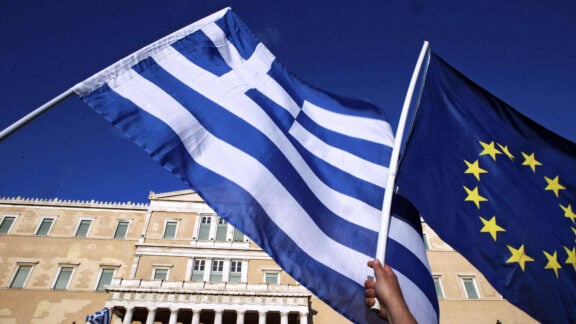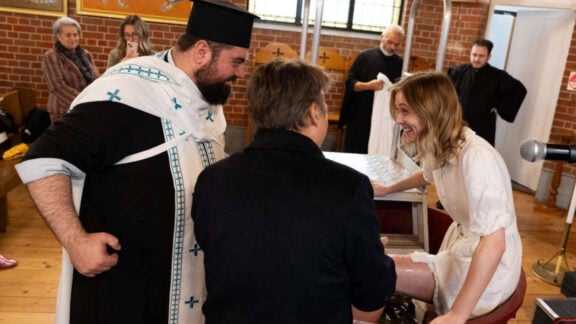After years of being turned down by Pericles for an interview, finally he has taken the time out to speak with me after he delivered the Funeral Oration.
This is how it would have gone:
You are known as the First Citizen of Athens, many of your fellow Athenians have a deep admiration for you. We all know about the public persona of Pericles − what we would like to know is more of the private side, especially from your childhood. Can you tell us a little about your life growing up?
Thank you for the opportunity to connect with your audience. I was born 65 years ago in the finest city in the world. My beautiful mother was Agariste, from the noble family of the Acamantis. She was Cleisthenes’ great-granddaughter who was a leader of Sicyon, some may say a tyrant. Conversely, she was a niece of Cleisthenes. Here was the man who in my opinion, after the visionary Solon, helped set out the reforms and pathway for democracy by making it more accessible to all (male) citizens to be involved.
My father was Xanthippus, a politician and strategos. For a while he was ostracised by my fellow Athenians. I was just 10. This can obviously have an impact upon any child. We were very proud of him when he was allowed to return to Athens to lead his men against the Persians, including a final decisive victory at Mycale, just off Asia Minor.
I was actually a quiet boy and diligent with my studies. I usually kept far from the public arena. I was taught by Damon and I tended to prefer the company of philosophers, especially Anaxagoras.
Anaxagoras was quite a skilled and powerful philosopher. What imprint did he leave upon you?
The way one should use emotional calm when in any form of trouble; he challenged the thought of divine intervention and challenged me to think.
When did you take up political life and why?
I was in my early 30s and felt it was an opportune moment to become more involved with the decision-making processes of Athens. We had helped repel the Persians decades earlier and I could see that we should not rest on our laurels. I admired Themistocles and decided to sponsor a theatrical production,
The Persians, by Aeschylus. Themistocles is a name that we shall never ever forget. Democracy, freedom, arts, all survive because of this great man, and men like my father. It was a pity that one of my opponents Kimon belonged to a faction that felt it necessary to ostracise one of Athens’ saviours. Kimon is someone who is selfish and this is demonstrated by how he allowed our assets in Macedon to be neglected when he was leader.
Was this a reason why you and your democratic party helped to ostracise Kimon?
In my opinion, Kimon was a friend of Sparta and as such, there should be no place for him in the ecclesia. Our party is here to help people achieve a voice, and we listened. With Kimon out of the way, we lowered the property requirement for a person to attain archonship, provided a stipend for jurors to eliminate bribery. I want the poor to have access to public offices and free access to the arts − this is what democracy should be aspiring to. I also brought in a public payroll which has helped eliminate bribery.
On the flip side, you passed a law preventing a person who only had one parent of Athenian heritage from gaining full citizenship, while women and slaves continue to be excluded from citizenship.
Athens must remain pure. We lead the world in arts, philosophy, entertainment, architecture, science, seafaring, commerce and manufacturing. We need to protect Athens for centuries to come. Can you imagine if a half Spartan was allowed to vote in the ecclesia?
With the death of Ephialtes, you have been the unchallenged leader of your own party and of course in the ecclesia for around three decades. You have also succeeded on the battlefield. Tell us about your role as a strategos (general).
I had the unfortunate task of leading us into the Peloponnese for war against members of the Peloponnesian League, taking on Sicyon and Acarnania, allies of Sparta. We brought back Kimon from exile to negotiate the Five Year Peace with Sparta. With Sparta in abeyance, we sent expeditions to Egypt and Cyprus. I should point out that we did not have a peace in place with the Persians when we intervened. We do not want Greeks to be under the yoke of Persians. In fact, we want a free world and one where democracy, not autocracy, rules.
I led our military in the Second Sacred War to reclaim Delphi and strengthened the Delian League to such an extent that it is almost unchallenged in the Aegean and to an extent the Mediterranean.
Is this not an empire of Athens? During your reign you transferred the Treasury from Delos to Athens.
Of course not, for without Athenian leadership, the free cities and kingdoms of the Hellenic world would be challenged by Sparta. Athens is truly great, for she has expended more manpower, resources and sacrifice than any other to protect freedom. Fifteen years ago, as an example, I led an expedition in Thrace to expel barbarians in Gallipoli. To ensure that the barbarians never returned I created a number of colonies in the region and elsewhere in the world to promote democracy and Hellenic ideals.
No city in the world has seen such a construction boom as Athens has − can you explain why this has occurred?
The best way to keep people employed and to beautify an already outstanding city is by creating the best buildings the world has seen. I also wanted to employ and encourage artists and architects to leave their mark on the city. Hundreds of new buildings have come into effect; statues, public art and unique features have been added and I can assure you, they will stand for thousands of years.
In effect, I wanted Athens to become the intellectual and architectural capital of the world. The Acropolis now is home to the Parthenon, a temple to Athena. The marble is pure, the carved panels and reliefs the envy of the world. Only a foreign idiot or thief would be stupid enough to damage this architectural achievement. This building, statues, they belong to the city and people of Athens. No one has my permission to ever remove them from Athens. No one! Another temple I would like to highlight among many is the Temple of Olympian Zeus and the Temple of Apollo. The architects, engineers, artists and workers demonstrated that Athens is the home of architectural design triumph.
You also created a police force, yearly elections, helped to foster a general ecclesia of 6,000 citizens at the Pynx of the Acropolis and broke bills into two stages, one a vote at the ecclesia and one for the Council which consists of 50 members from each tribe, randomly elected. Is there anything you have not achieved in public life?
There is more to achieve and I place a great emphasis on continuing to build upon philosophy, theatre, education, literature and thought. I want Athens to truly be remembered as a Golden Age. My most pressing issue of course is dealing with Sparta.
You gave a moving Funeral Oration last week.
As you are aware, we hold a public funeral to honour the dead in war. Recently, I built long walls from Athens to Piraeus harbour to keep the pesky Spartans out, as we have been at war again for over a year. We keep our slain in a tent on public view for three days, with 10 cypress coffins for each tribe of Athens and one for the unknown soldiers. We bury these at the public grave of Kerameikos.
I wanted to remember these brave soldiers. At the same time, I wanted to remind everyone why Athens is pre-eminent and why we need to stand against tyranny and the potential threat of those who seek to end democracy and the freedom of our people. If we look to the laws, they afford equal justice to all in their private differences … if a man is able to serve Athens, he is not hindered by the obscurity of his condition. The freedom we enjoy in our government extends also to our ordinary life. There, far from exercising a jealous surveillance over each other, we do not feel called upon to be angry with our neighbour for doing what he likes.
We throw open our city to the world, and never by alien acts exclude foreigners from any opportunity of learning or observing, although the eyes of an enemy may occasionally profit by our liberality … advancement in public life falls to reputations for capacity, class considerations not being allowed to interfere with merit … our ordinary citizens, though occupied with the pursuits of industry, are still fair judges of public matters … in Athens we live exactly as we please, and yet are just as ready to encounter every danger.
As a city we are the school of Hellas; while I doubt if the world can produce a man who, where he has only himself to depend upon, is equal to many emergencies, and graced by as happy a versatility as the Athenian.
Pericles passed away the following year (after the famous oration), two years into the Peloponnesian War. The war tested the power of the two great rivals of the fifth century. Within a century, a number of Greek cities had risen to challenge Athens and Sparta as an outcome of the war, notably Thebes, Corinth, but it was the Hellenic Kingdom of Macedon under Phillip II which would gain control of all of Greece by 338BC.
* Billy Cotsis is the author of Many Faces of Hellenic Culture and intends no offence by travelling back in time; the ‘interview’ is an attempt to present Pericles using a different method from a traditional article.







